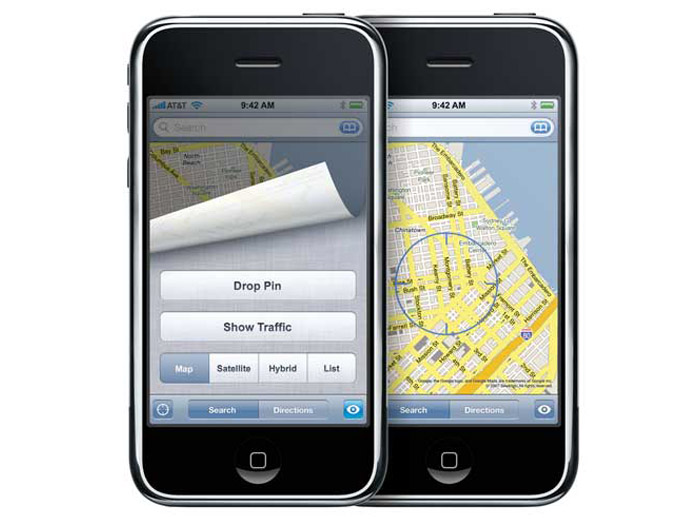iPhone in the UK: two years on
Looking back over the 730 days since the launch of iPhone v1
The iPhone 3G (which arrived on O2 in July 2008) removed the limitation of EDGE-only data, added a standard headphone jack, GPS and saw the launch of the 2.0 firmware with Microsoft Exchange support and third-party apps. The 3GS added in a compass, 3.2-megapixel camera, video plus faster hardware.
Just before the iPhone 3GS was released this June, Matthew Key, CEO of Telefónica Europe (O2) said: "The iPhone has been a phenomenal success for us. We look forward to offering an ever better iPhone 3G experience exclusively to our customers in the UK and Ireland."

As we now know, Orange will be stocking the 3G and 3GS from tomorrow, while Vodafone will have the handset from early next year.
Apps the key
Possibly the iPhone's greatest achievement has been the phenomenal success of the App Store – 100,000 apps are now available across the Globe.
"The iPhone is a fantastic piece of kit, but its real innovation is in bringing mobile apps into the mainstream," says Alex Caccia, CEO of developer Ideaworks Labs "It's turned smartphones into more than just a communications device but something customisable, useful, and fun, thanks to the range of apps produced by developers and the simple process of purchasing them on the App Store."
"The iPhone has changed the mobile landscape, and in true Apple form - redefined it," agrees Darren Lynch, Director of Gormet Pixel – the developer behind the recent Haynes manual app.
Sign up for breaking news, reviews, opinion, top tech deals, and more.
"Large brands are getting involved with the apps, realising they can now monetise the mobile market in an effective way. We believe this is a trend set to continue, increasing consumer confidence in the quality of apps that have a big brand name behind them. The sheer volume of new apps will slow, the quality will rise and in turn increase the average app prices."
The iPhone has also meant a great deal for mobile operators such as O2. "The introduction of the iPhone has led to a tenfold increase in user demand for bandwidth on mobile networks, and operators are struggling to keep up as the iPhone and other smart phones drive a huge increase in the use of data applications" observes John Spindler from ADC. Challenges continue for operators - O2 in the UK and AT&T in the US have both come under fire over their network performance.
An interesting future beckons for the iPhone. Its plethora of apps are already posing problems for other devices (such as the humble sat nav). The iPhone will be widely available across the major UK networks as of the new year, surely resulting in a rapidly increasing UK userbase. And then, of course, there's plenty of competition ahead, too, with Android 2.0 around the corner and Windows Mobile 7 set to debut. And a new iPhone in June? Probably.
Dan (Twitter, Google+) is TechRadar's Former Deputy Editor and is now in charge at our sister site T3.com. Covering all things computing, internet and mobile he's a seasoned regular at major tech shows such as CES, IFA and Mobile World Congress. Dan has also been a tech expert for many outlets including BBC Radio 4, 5Live and the World Service, The Sun and ITV News.